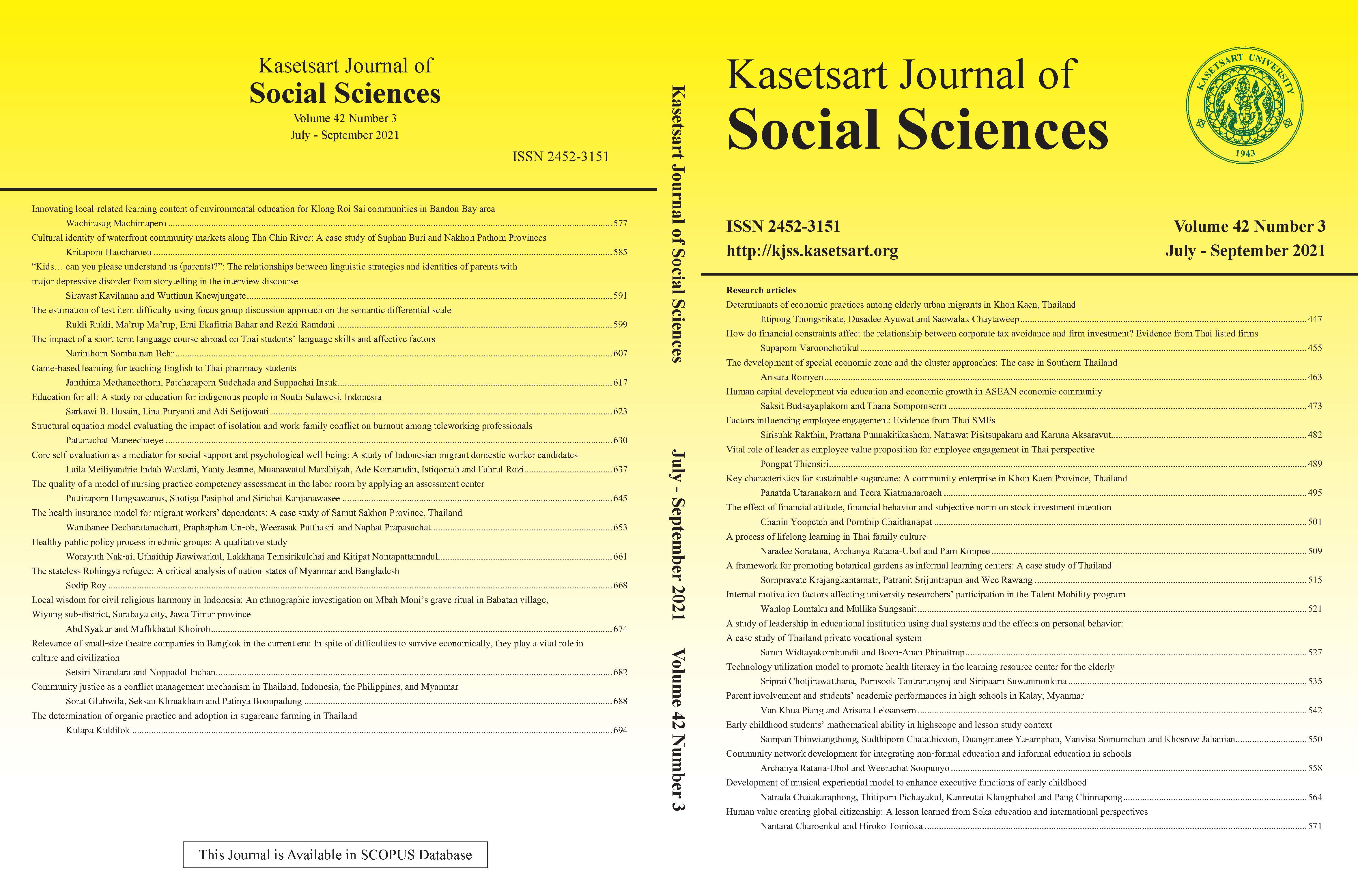The health insurance model for migrant workers’ dependents: A case study of Samut Sakhon Province, Thailand
Keywords:
health insurance, health insurance model, migrant workers’ dependentsAbstract
This paper presents the health insurance model for migrant workers’ dependents in Samut Sakhon Province. Research and development technique was used for this study, together with qualitative and quantitative approaches in the mixed method design that targeted migrants’ dependents of Myanmar, Cambodian and Laotian nationalities and aged between 7 and 15. Data were collected in 37 health insurance workers, local staff and experts through in-depth interviews and focus group discussions. The questionnaire survey was implemented in parents and guardians of dependents, representing 396 migrant households. The finding on the demand for health insurance card purchase indicates that the demand is associated with an affordable price with statistical significance at .05. The newly developed model promotes dependents’ accessibility to health services if ill. This model integrates both compulsory and voluntary patterns. It is made of five key components: The insured or the beneficiary; The insurer; The benefit package; The health care unit and; Health insurance financing. In principle, equity and quality lie at the base of the proposed model. It means that all the disadvantaged population have the right to proper medical care equally, on non-discrimination and the right to health. This model is applicable to migrant groups in other areas. In conclusion, health insurance should be grounded on equity and quality, and health care accessibility regardless of income, social and economic status.
Downloads
Published
How to Cite
Issue
Section
License

This work is licensed under a Creative Commons Attribution-NonCommercial-NoDerivatives 4.0 International License.
This is an open access article under the CC BY-NC-ND license http://creativecommons.org/licenses/by-nc-nd/4.0/










